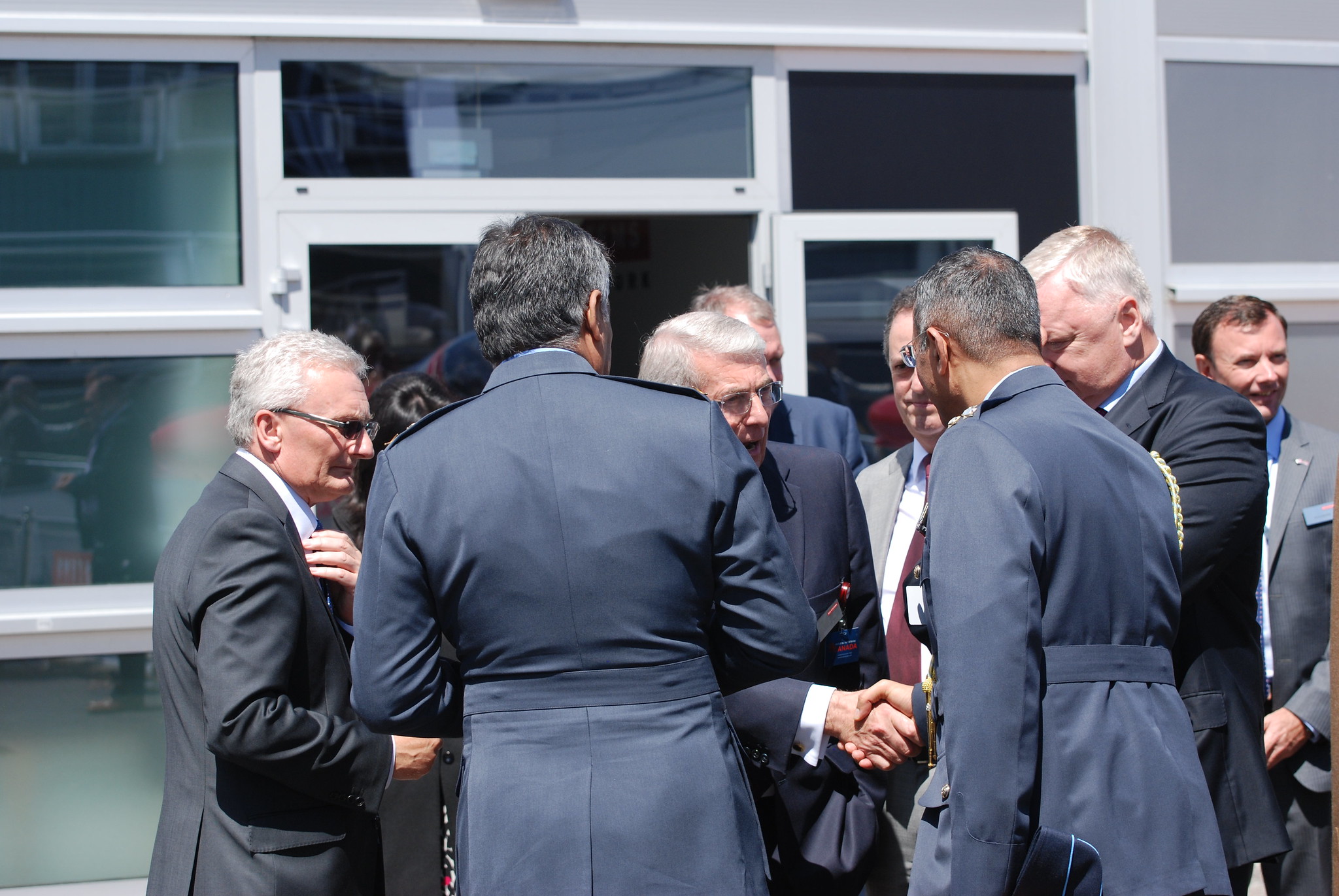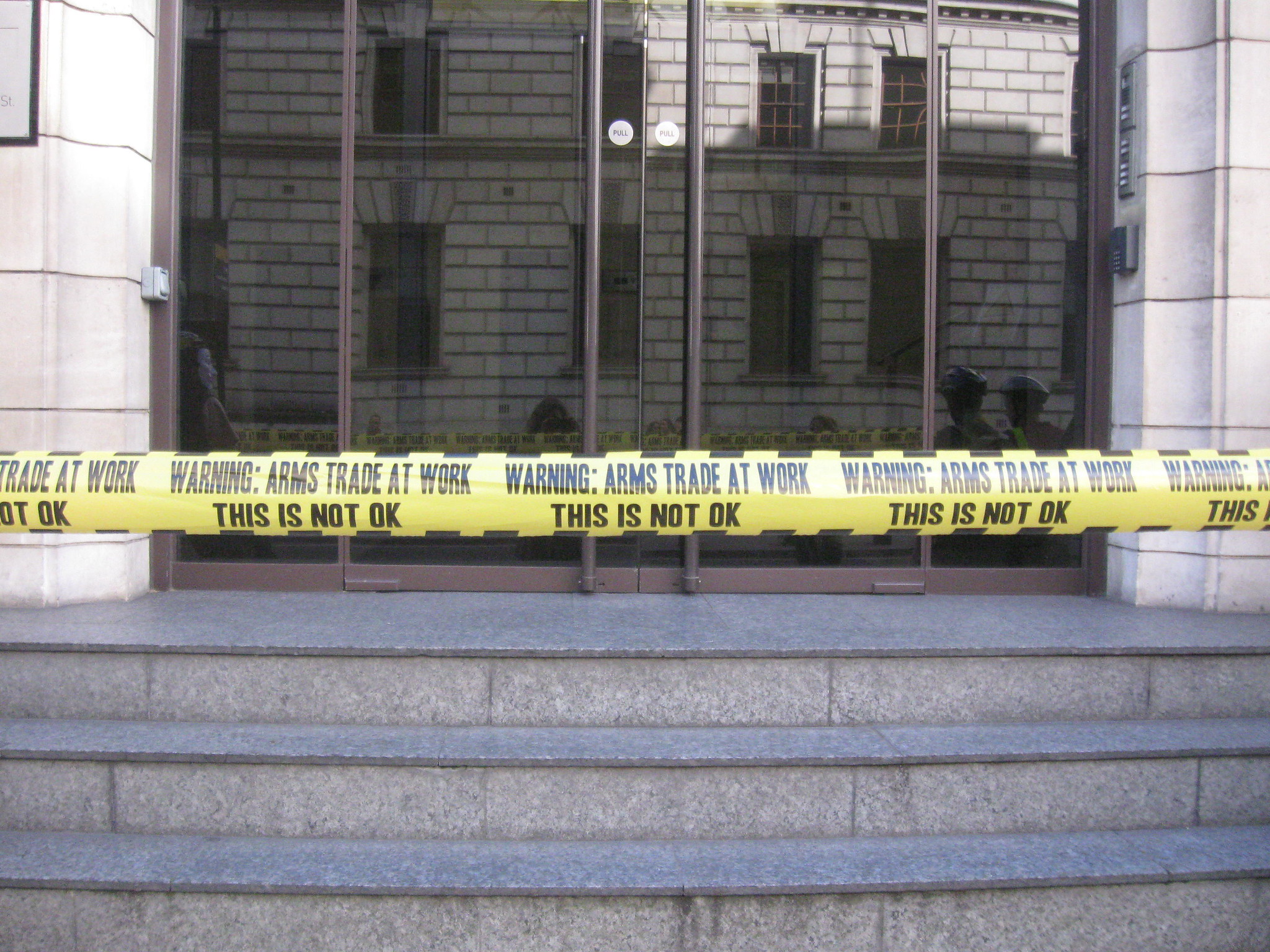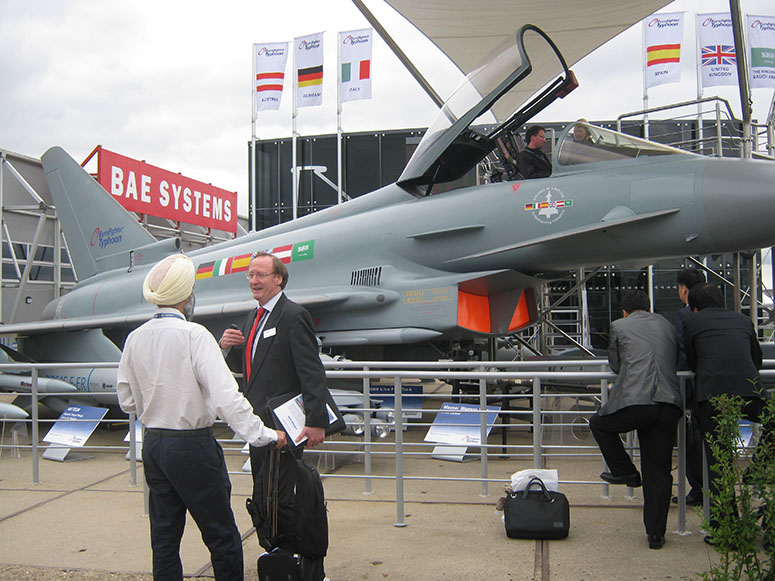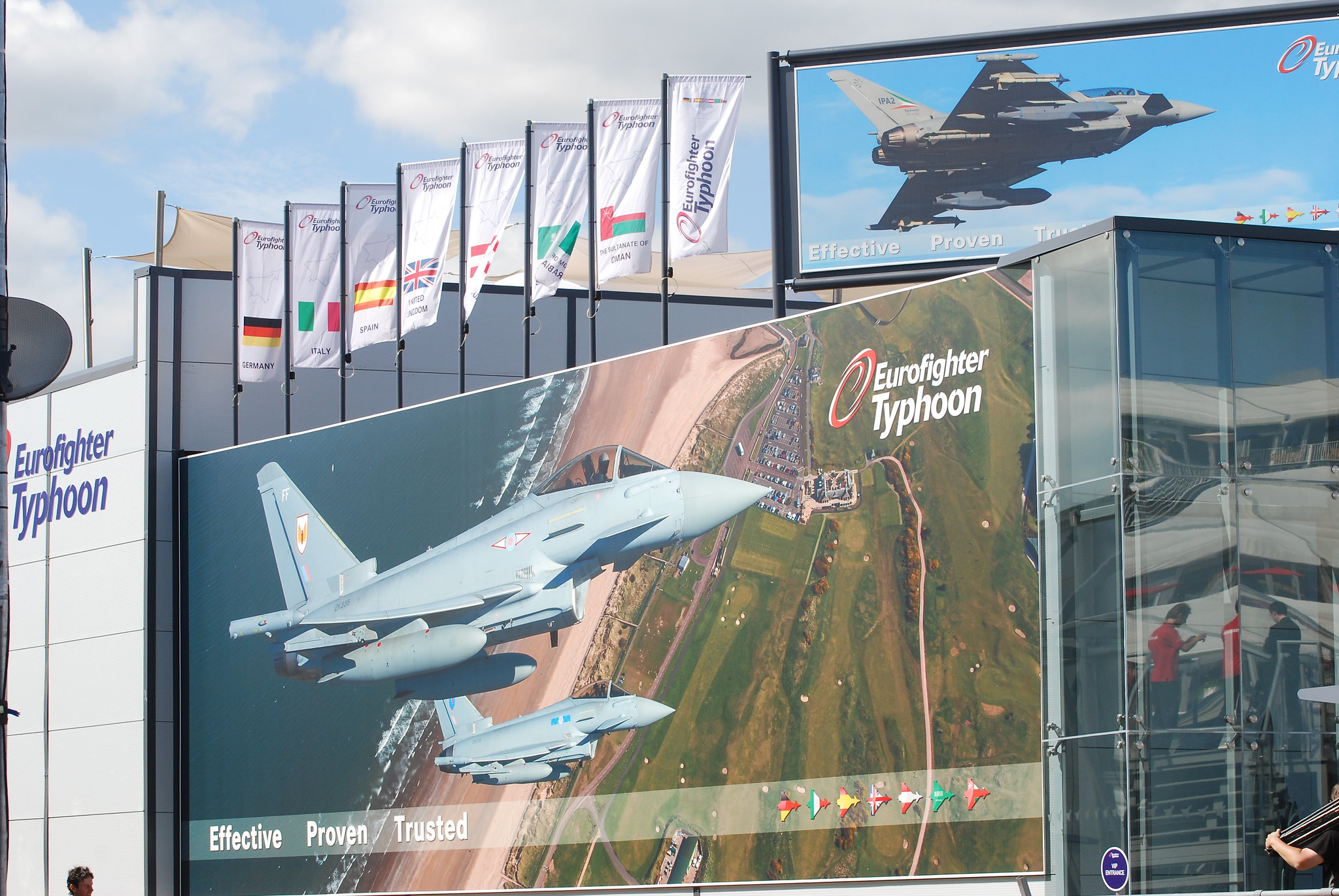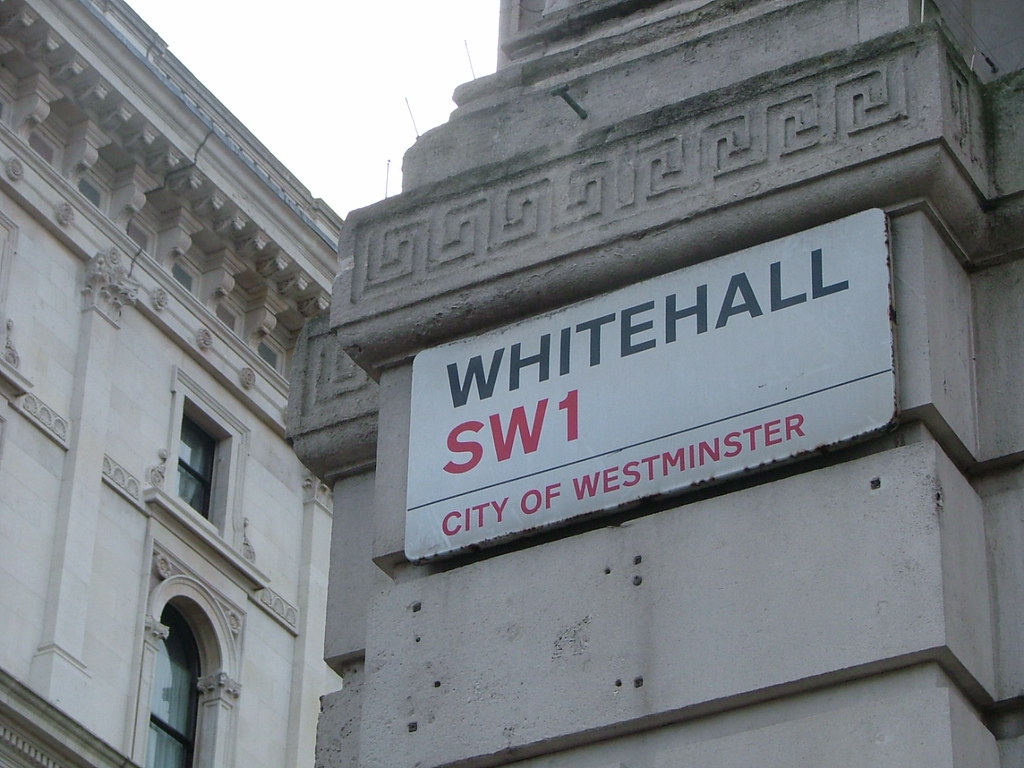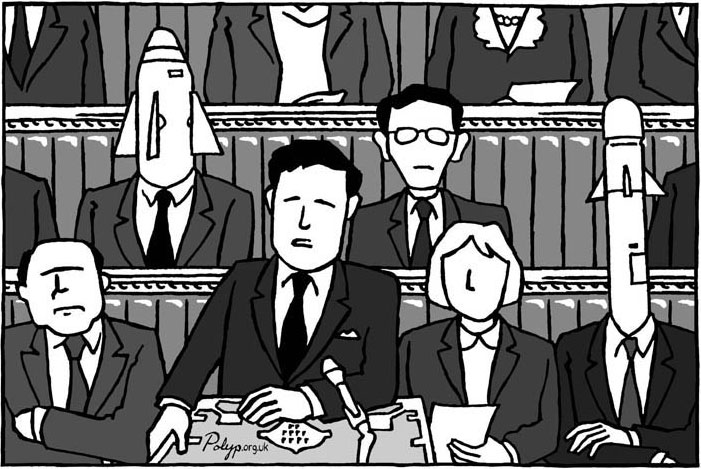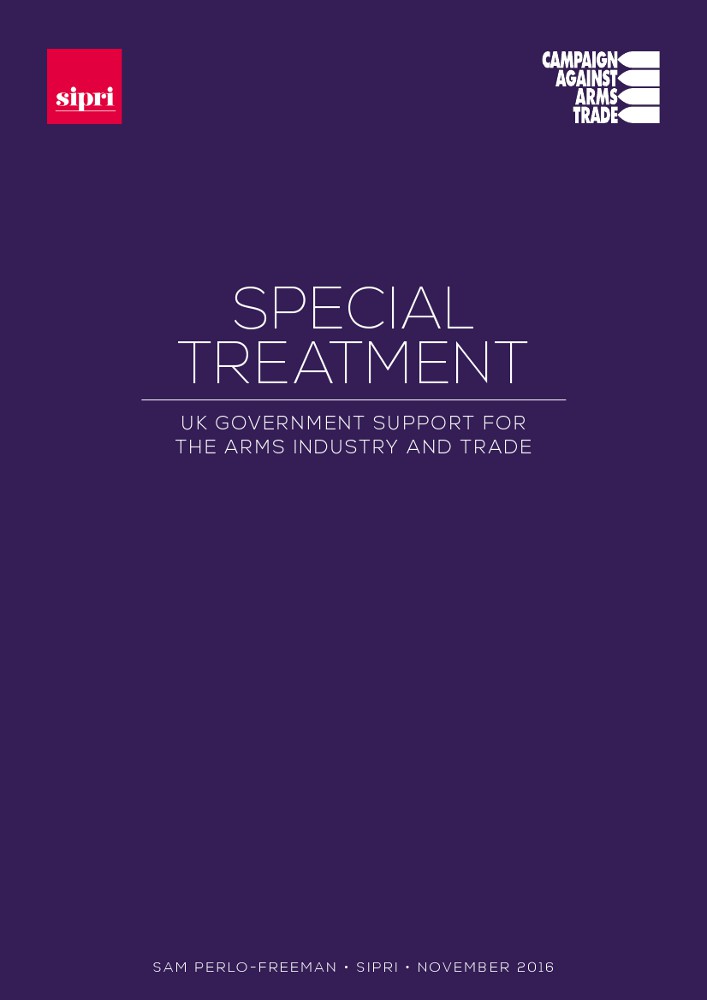The UK arms trade would not be possible without the unwavering support of the UK Government. The government does not just oversee the arms trade; it is an active participant.
The government is supposed to ‘control’ the export of military equipment from the UK, but there is a fundamental conflict between this role, and its focus on promoting the sale of weaponry.
There are lots of ways in which the government supports the arms trade
- The UK has an entire arms sales unit within government, dedicated to promoting weapons purchase to whoever will buy.
- The UK government helps organise arms fairs, events which facilitate international arms deals
- The UK government provides insurance for companies making arms deals, in case the buyer doesn’t pay
- The arms industry has special access to government, and people often move between government positions and roles in arms companies.
Every year the UK Government authorises the sale of arms to well over 100 countries across the globe.
Arms ‘control’
The government is responsible for ‘controlling’ the export of military equipment from the UK. Companies must apply to the government for permission to export military equipment and the government should assess applications against its export guidelines.
These rules say that sales should not be allowed when there is a clear risk that the items might be used for internal repression
or in the commission of a serious violation of international humanitarian law
, or where they would provoke or prolong armed conflicts.
The government continues to insist that the UK has one of the most rigorous arms export control regimes
in the world. Yet UK-made arms are supplied to countries in conflict, often to both sides, and to countries engaged in internal repression. The government has licensed the sale of billions of pounds of weaponry to the Saudi-led coalition in Yemen, despite overwhelming evidence of repeated breaches of international humanitarian law.
Unfortunately, the government’s focus is on securing further business, not controlling arms sales.
Government arms sales unit
The Government’s Department of International Trade’s UK Defence and Security Exports unit is a vital part of the UK’s arms industry. It exists solely to help the arms and security industries sell their products around the world.
It employs over 100 civil servants and military staff to work with arms companies to boost exports. Civil servants and government ministers work hand-in-hand with arms companies to maximise sales.
As Bob Keen, the Head of Government Relations at BAE Systems, explained:
It simply is not possible to do a major defence deal without fundamental government support.
– stated to the House of Commons Defence Committee, 2016
Arms Fairs
One way that the Government promotes the arms trade is by supporting arms fairs. These give arms dealers the chance to meet and greet military delegations, government officials, other arms companies and a host of individual visitors.
Unsurprisingly, the guest lists for arms fairs frequently include regimes who abuse human rights, and countries actively involved in armed conflicts. The biggest of these is the Defence & Security Equipment International (DSEI) arms fair that happens every two years in London.

